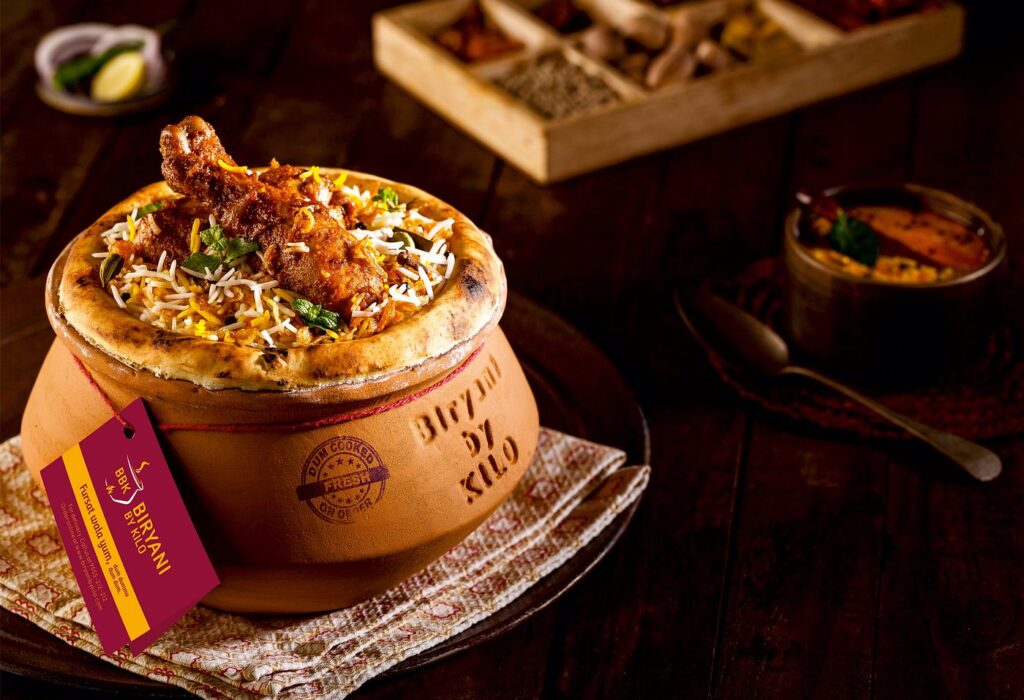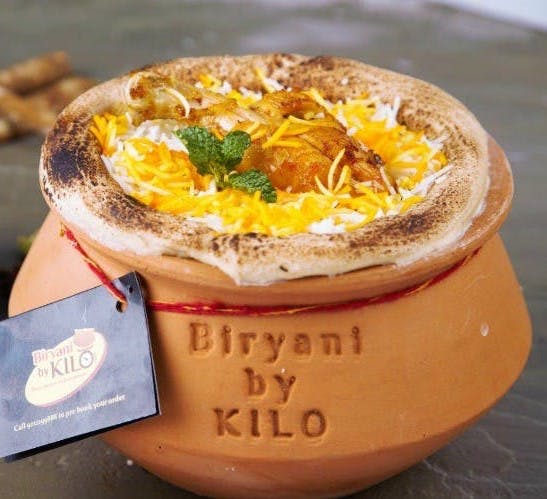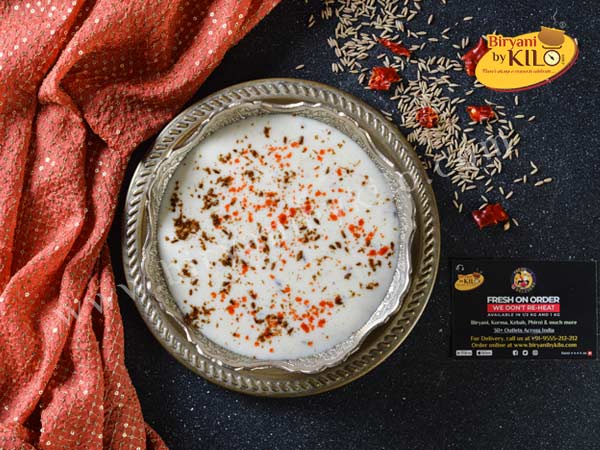1. Introduction and Background
- Founder’s Journey: Kaushik Roy, the founder of Biryani By Kilo (BBK), started his career as a waiter and worked his way up to high-level management roles, including CEO at various companies.
- Market Opportunity: India lacked a prominent leader in biryani delivery despite its popularity as a cuisine. Unlike other fast-food sectors dominated by big brands like Domino’s for pizza and McDonald’s for burgers, biryani remained unorganized with no dominant brand.

2. BBK’s Unique Business Model
- Fresh Dum-Cooked Biryani on Demand: BBK differentiated itself by offering freshly dum-cooked biryani in individual clay pots for every order, emphasizing freshness and quality.
- Focus on Delivery: Adopting a cloud kitchen model, BBK avoided the high costs associated with sit-down dining locations.
- Scalable Model: With standardized SOPs, BBK maintained consistency across multiple locations, allowing for rapid expansion without reliance on high-skill chefs.
3. Strategic Insights
- Operations: BBK implemented a unique delivery-friendly model where biryani is served in clay pots, maintaining food quality and brand authenticity.
- Marketing: Initially, BBK distributed pamphlets and relied on word-of-mouth. As it grew, BBK adopted a 360° marketing approach with digital (social media and influencer marketing) and traditional media.
- Finance: The founders strategically raised funds from patient investors who understood the long-term vision of establishing BBK as a leader in the biryani segment.
- Product Consistency through SOPs: BBK maintained food consistency across outlets using SOPs, training lower-skill staff to prepare food with the same quality, reducing dependence on expensive chefs.

4. Growth and Financial Performance
- Rapid Expansion: Within five years, BBK expanded to 50+ outlets across multiple cities, recording annual revenues close to 100 crore INR.
- Profitable Model: BBK achieved profitability within two months of launch and consistently maintained high gross margins, approximately 60-63%.
- Funding and Financial Structure: Initially bootstrapped, BBK later secured external funding to fuel growth, planning to raise further in Series B with prominent investors like IvyCap Ventures.
5. Challenges and Key Learnings
- Scalability and Manpower: Maintaining consistency across outlets without highly skilled manpower was challenging. By relying on SOPs, BBK standardized processes to reduce training time and ensure uniformity in food quality.
- COVID-19 Impact: The pandemic posed a significant challenge, but BBK’s delivery-focused model, contactless and live kitchen approach, helped reassure customers about food safety, eventually leading to growth surpassing pre-COVID levels.
- Branding in a Fragmented Market: Establishing a brand in an unorganized market segment was challenging. However, BBK succeeded by positioning itself as a premium, delivery-friendly biryani brand and focusing on quality and customer experience.
6. Future Prospects and Strategic Direction
- Domestic and International Expansion: BBK aims to expand further within India and explore master franchising or joint ventures in the Middle East and Southeast Asia, where there’s a growing demand for Indian cuisine.
- Technology Integration: BBK continues to use technology to enhance food consistency, customer engagement, and operational efficiency.
- Brand Building and Customer Loyalty: BBK is investing in branding to strengthen its position as a market leader in biryani, similar to Domino’s for pizza, with a focus on customer loyalty and lifetime value.

7. Key Takeaways
- Niche Focus: BBK leveraged an untapped market by focusing solely on biryani, which helped it build a unique brand identity.
- Operational Efficiency: By using standardized processes, BBK achieved scalability without compromising on quality.
- Customer-Centric Model: BBK’s emphasis on fresh, high-quality biryani served in clay pots differentiated it from other food delivery services.
8. Data Points and Metrics
- Gross Margin: 60-63%
- Average Order Value: ₹900-₹1000
- Customer Acquisition Cost: ₹250
- Expansion: 50+ outlets across India
- Investment Requirement: Approximately 10-12 lakh INR per kitchen
- Projected Revenue Goal: Targeting a turnover similar to other leading QSRs in India like Domino’s, with ambitions to reach 1000 crore INR.
10. References
- Source video: Biryani By Kilo Success Story – YouTube
Leave a Reply